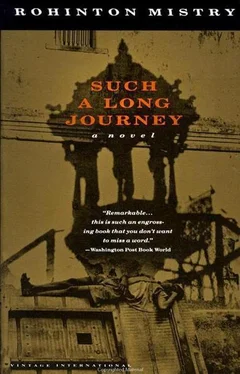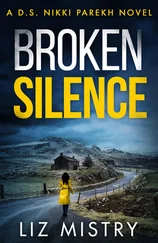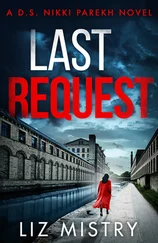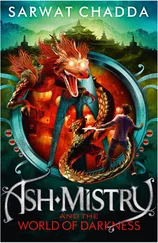But the vulturists produced written guarantees from world-famous ornithologists stating that vultures, as a species, were unable to fly after a heavy meal or if their talons and beaks were loaded. The beleaguered clerk greeted the experts’ pronouncements with relief. Though not one given to controversy, he at once seized on the document to make photocopies for high-rise tenants who came to complain.
But none were satisfied. Aeroplanes were not involved, that much was certain. However, if the ornithologists were right, they demanded, could the clerk tell them the origins of the balcony meat? If not human, what was it supposed to be? Beef? Mutton? Were they to believe that goaswallas had suddenly become airborne, plying their trade in the skies, flying over the city with their butcher knives and cleavers? Were they riding their bicycles among the clouds, making deliveries through balconies instead of back doors?
The poor clerk no longer had any answers. He heard reproach and censure unceasingly in the speech of his fellow men, blame and reprimand even where none was intended.
To Gustad’s simple question about Jimmy Bilimoria, he pounded the desk, his bloodshot eye blinking furiously: ‘Tell? Tell what? You think this is the information bureau?’
Later, when he thought about it, Gustad was surprised he had not retaliated. Allowed a runt like that to speak to me thus. I grow old.
Taken aback, he wearily tried again. ‘I just thought you might know who made the pydust arrangements.’
The clerk was encouraged. For the first time, he had successfully put a questioner (perhaps even a complainer) in his place. ‘Who knows?’ he said guardedly. ‘The behesti was delivered, money order and death certificate with all proper attachments was delivered. Our chief dustoorji said, if there is a dead Parsi, our duty is to perform the funeral. We don’t poke our noses anywhere else.’
‘But what about the announcement in Jam-E-Jamshed ?’ persisted Gustad. Hopeless fellow, this. The clerk on duty that night, when I came for Dinshawji, was so helpful.
‘ Pydust announcements in Jam-E-Jamshed are always inserted by the family of the deceased,’ he answered stiffly. With his dignity partially restored, he found it demeaning to have that paltry function attributed to him.
‘This man had no family.’
‘So?’ Was he to be blamed for Mr. Bilimoria’s lack of family? Anything was possible with the kind of crackpots he ran into these days.
Gustad gave up. ‘Thank you very much for helping,’ he said, and continued down the hill, his steps quickening with the slope.
Just within the entrance gate, a taxi was waiting in the shade of a tree. Its meter was flagged to the side: out of service. The driver was wearing dark glasses. And a moustache that was identical to Jimmy’s, thought Gustad. I know this man, he felt, as he got nearer.
Malcolm Saldanha studied the plans and drawings, checked a few calculations, then skimmed through the rest of the file. The project was to commence today under his supervision. He yawned twice in quick succession. Bloody boring municipality. How he hated his job, but was also grateful for it — steady income, thanks to Uncle’s influence. This bloody city, turning into a harsh, merciless place. Regular salary was a powerful lure. No bloody security with piano tuitions, no telling when students could vanish. Children these days pampered with too much bloody freedom, discipline gone completely from the face of the earth.
And the beautiful music was gradually disappearing too, as surely as discipline. It was like watching the slow death of a loved one. Thank God for the Time and Talents Club, thank God for the Max Mueller Bhavan, for the British Council, for the GDR. Cultural Centre, for the USIS. Or the music would have died a long time ago. But these were the last gasps — the golden age of Western classical music in this city was definitely over. And that poor parent yesterday, so embarrassed to say that his son wanted a bloody Bullworker instead of piano lessons…
Malcolm sat up with a jolt. The word ‘demolition’ had caught his eye, and clanged like a warning bell. So far the bloody file had seemed fairly routine. Better concentrate. The story of a former projects supervisor was well-known. Misunderstood his orders, the wretched man. Demolished the wrong structure, and with it, his hopes of retiring with a pension.
So Malcolm stopped day-dreaming and started at the beginning. He read carefully, step by step, taking nothing for granted, jotting crucial features, making note of matters which could be easily overlooked when the workers were in full flush.
Then it was time to meet the crew at the depot, collect the equipment, and set off. Well, almost time. Five minutes to spare for a tea in the canteen. The musty smell of the rexine tablecloth rose to his nostrils. He lifted the saucer to his lips and blew to cool the tea. As the deflected steam condensed on his spectacles, the project’s location surfaced from the morass of technical jargon in the file. The name of the building danced before his fogged lenses.
The address flitted familiarly through his head, coming close to but never touching the vital memory that would have made the connection. Khodadad Building, he repeated silently as he made his way to the depot. Khodadad Building.
The lorry set off. Malcolm’s mind was soon occupied with planning details of a more immediate nature.
As usual, Sohrab made certain of arriving during his father’s office hours. Dilnavaz greeted him with joy and relief. She tore herself away for a moment to stir the rice and turn down the stove, then hastened back. She hugged him fervently, pressed her hands upon his cheeks, lamented he was losing weight for lack of proper nourishment. ‘How long it has been! Won’t you come back now? Haven’t you tortured me enough?’
Sohrab shook his head and turned towards the window. What was the sense in repeating everything each time he came. He felt like saying that that was the reason why the time between his visits lengthened progressively.
‘The house seems so empty. Do me one favour at least,’ she said, touching his brow and brushing back his hair. ‘Daddy will be home in a little while. Just talk to him nicely and then—’
‘Home now?’ Sohrab was perturbed at the prospect of coming face to face with his father. But he was also concerned about what could be wrong that kept him away from work.
Dilnavaz realized there was so much he did not know of, so much about Dinshawji and Ghulam Mohammed and Jimmy that had happened in the weeks since Sohrab’s last visit. She started at the beginning, and could see the shock on his face as she got to the end. ‘Yes,’ she said, ‘we were all shocked.’
Repeating the details brought back the grief; she swallowed hard and continued, coating every word with loathing and bitterness. ‘It’s a shameless, wicked deed. A terrible, evil thing done by the government.’ Her voice shook. ‘Murderers! They took Major Uncle’s life!’ Her lips began to quiver as her mouth distorted, ready to cry, and it was all she could do to keep back the tears. ‘But God is watching everything!’
‘Where is Daddy gone now?’
She told him about the funeral announcement. ‘We thought the same name was a coincidence. But how to say for sure? So Daddy went.’ She looked at the clock. ‘I have to go in a little while with Roshan’s lunch. Her first school day, I did not want to give her dry lunch. But Daddy should be back soon. Just talk to him nicely. Please.’
Sohrab rubbed the nape of his neck, the way he did when he was unsure of something. ‘It’s no use. I spoilt all his dreams, he is not interested in me any more.’
Читать дальше












